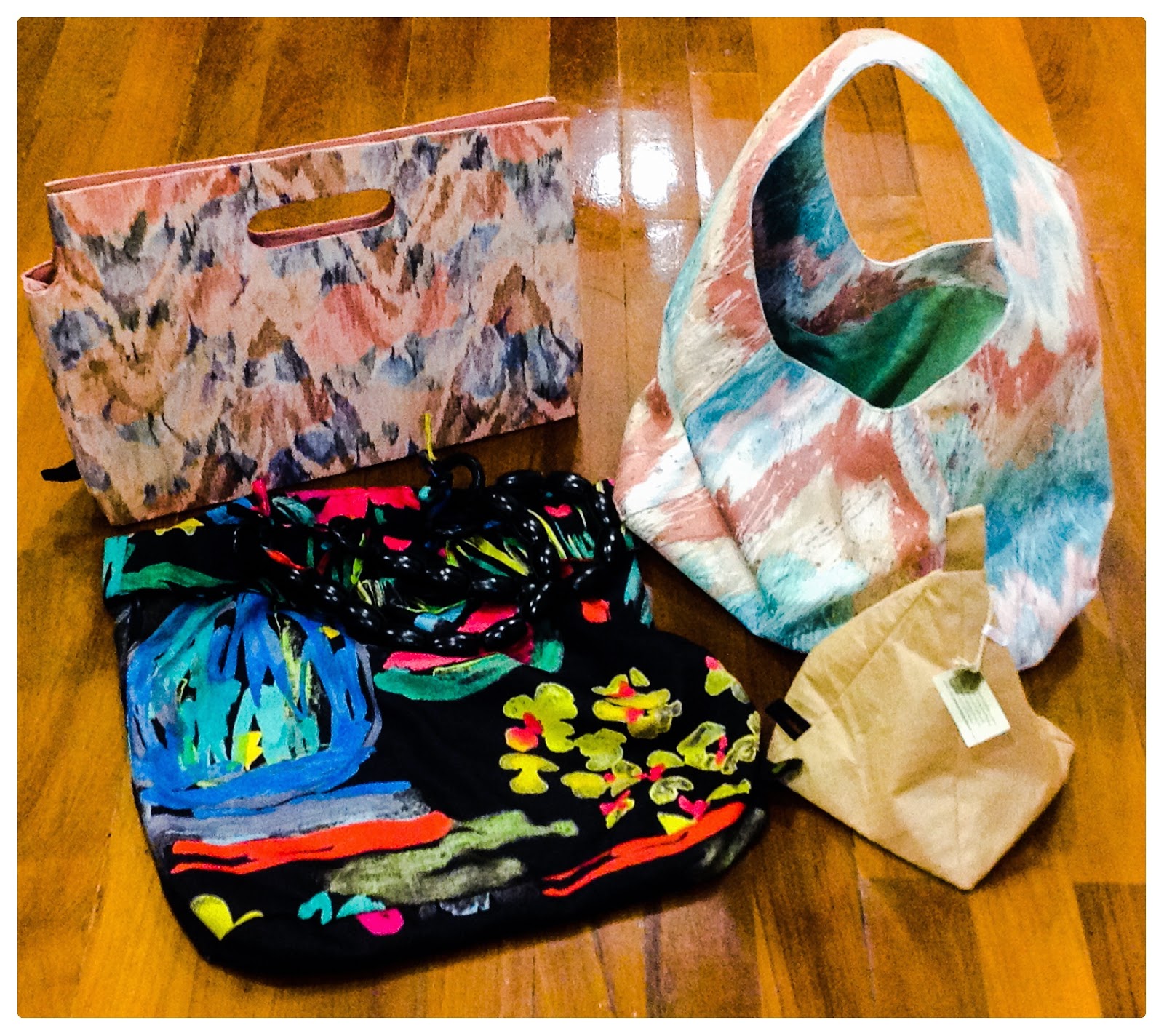 |
| Forty Red Bangles |
One of the brands I was looking forward to check out was Forty Red Bangles, a socially conscious fashion brand from India that sells a wide-range of products from organic apparels to upcycled accessories from the House of Wandering Silk as well as handmade toys. They also have an adorable kids line called Four Red Bangles that sells kurta pyjamas made from certified organic cotton and printed with low impact GOTS certified dyes. Since I have so many friends with young ones, I can foresee Four Red Bangles being a major source of gifts for their kids.
The story behind the brand fascinates me. Ramona Saboo, the founder of Forty Red Bangles, hails from Australia and migrated to India after marriage and has since moved to Singapore. The name Forty Red Bangles was inspired by the forty red and white bangles traditionally worn by Indian brides as a symbol of luck and safety. For Ramona, the bangles represent the connection between her past and her future. The brand was established as a way for her to showcase the beauty of India's craftsmanship and design with sustainability in mind.
Community development is a major part of Forty Red Bangles philosophy.They work with small artisan communities in India as well as non-governmental organisations. They are heavily involved in projects that focus on the empowerment of marginalised women such as the Sambhali Trust in Jodhpur and Gramshree in Gujarat. These organisations provide women, especially those from the lower-caste, with the means to achieve financial independence as well as preserve traditional skills and craftsmanship.
 |
| Clockwise, Zariin Jewelry, Betel Life and Kolombiana |






